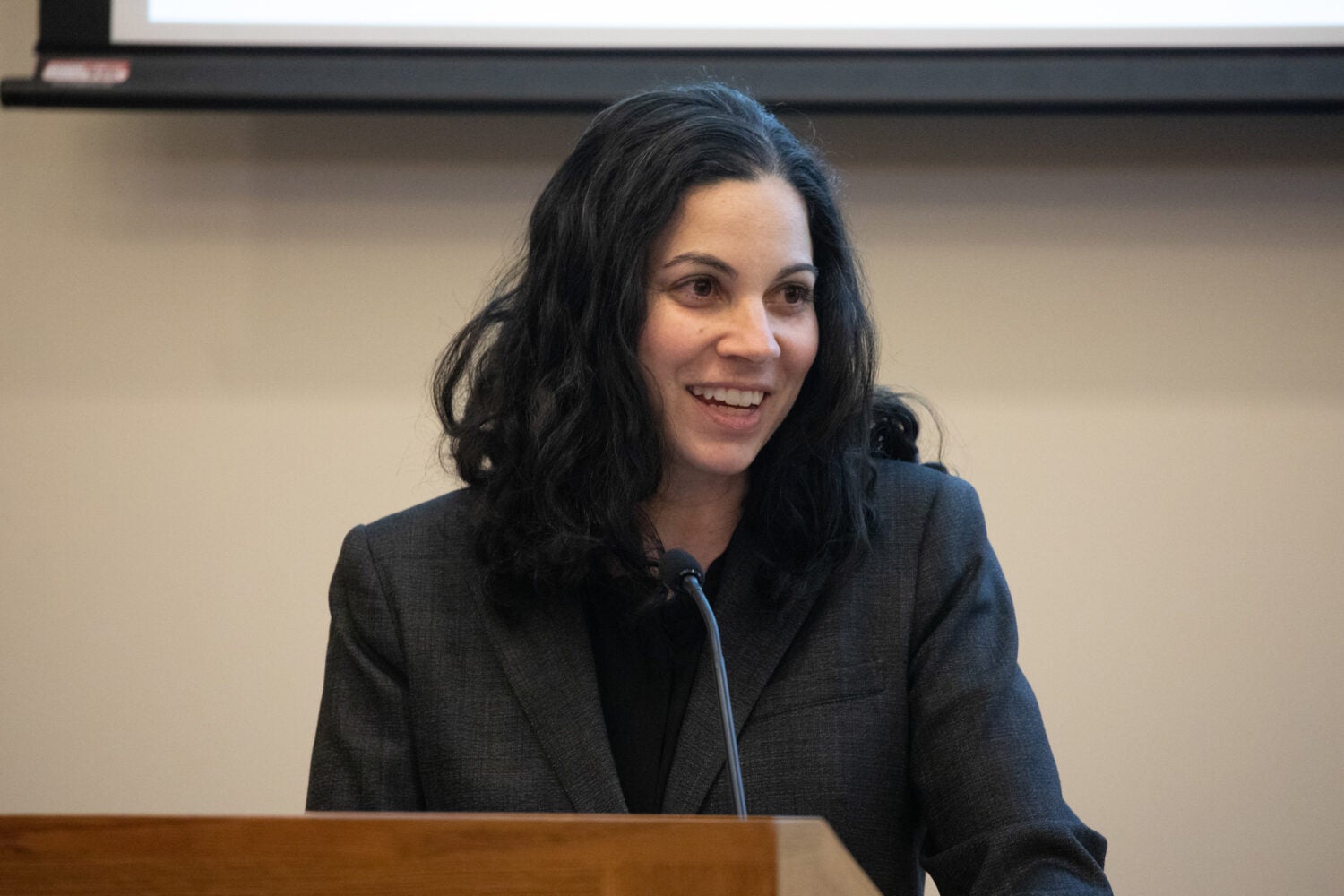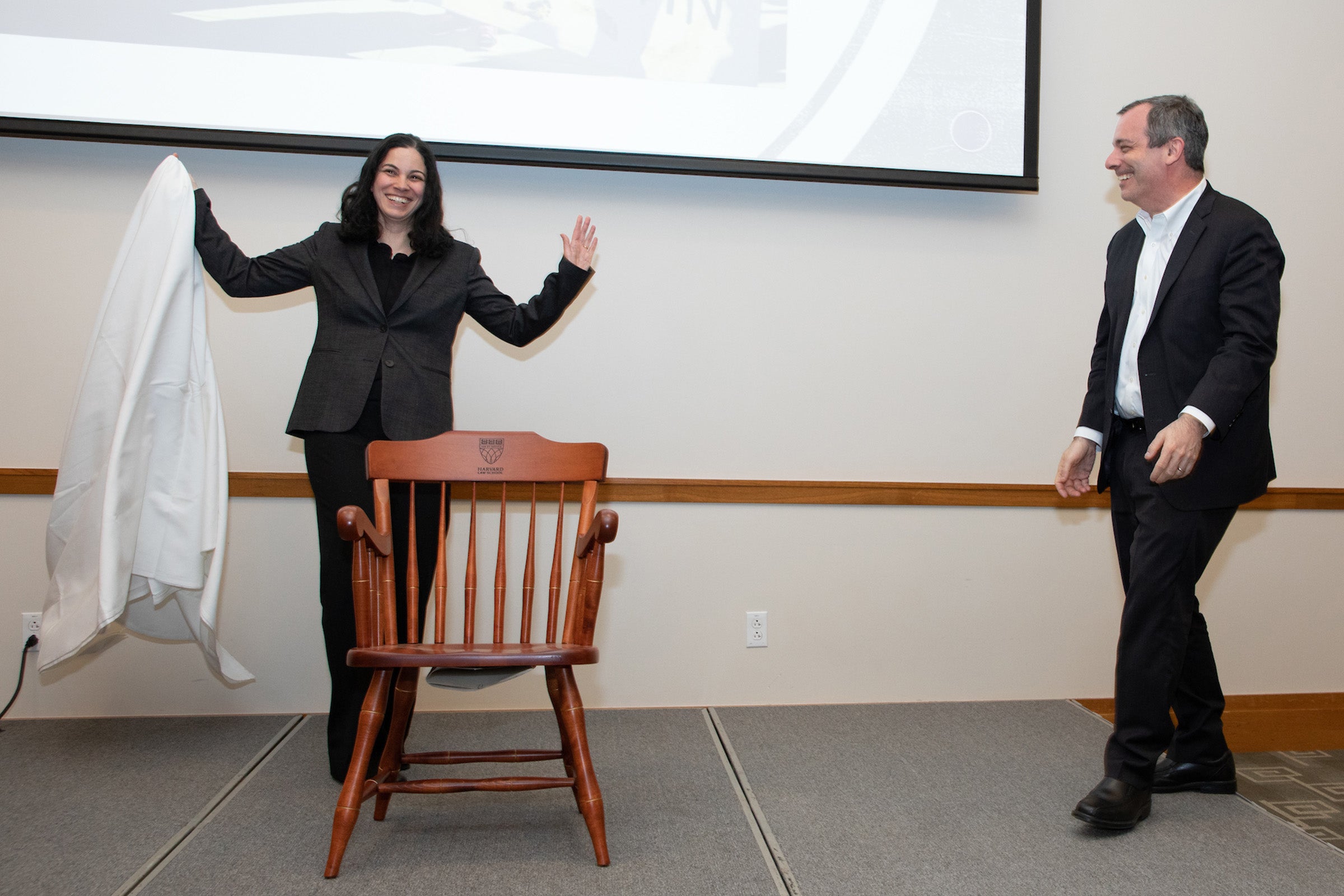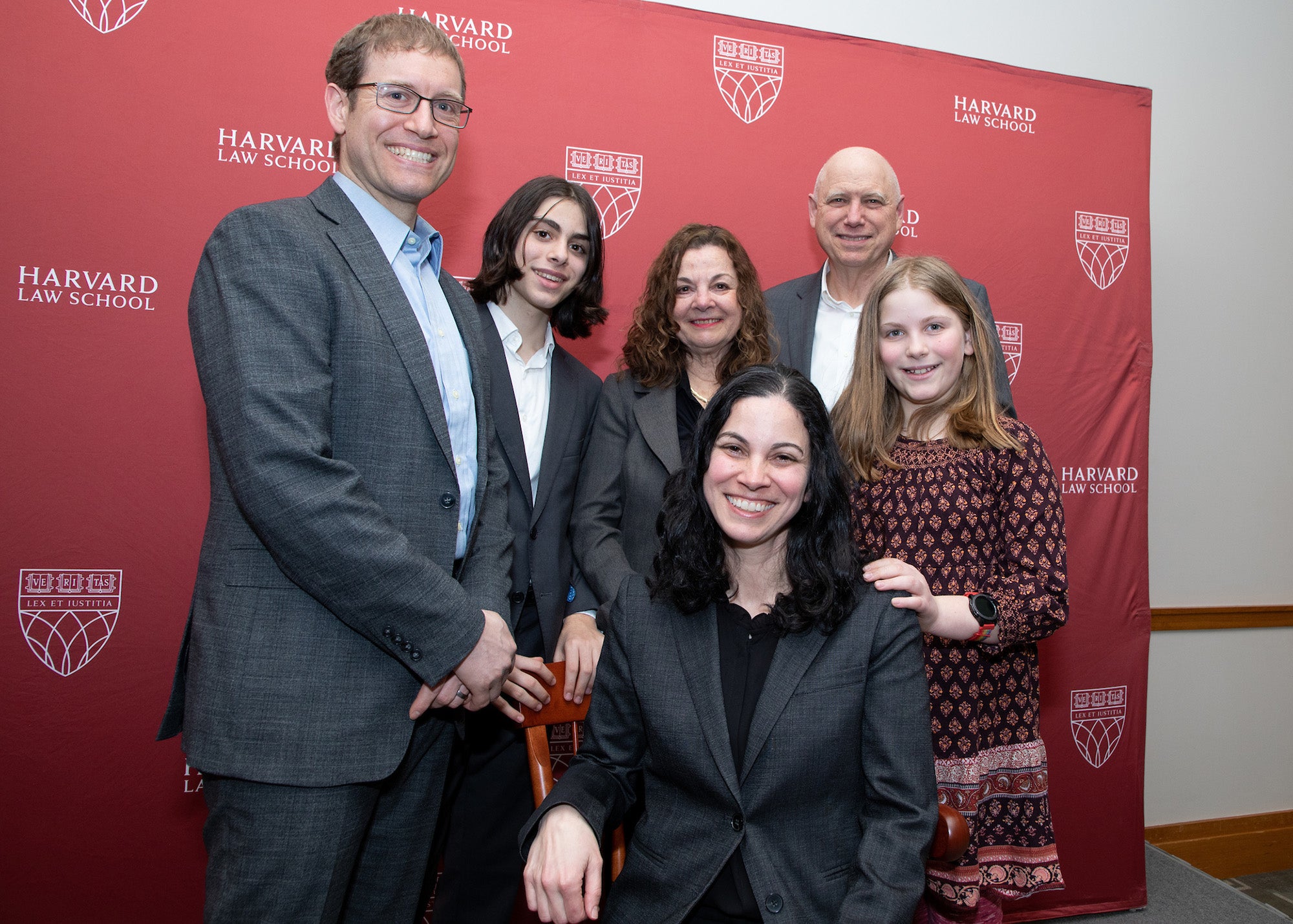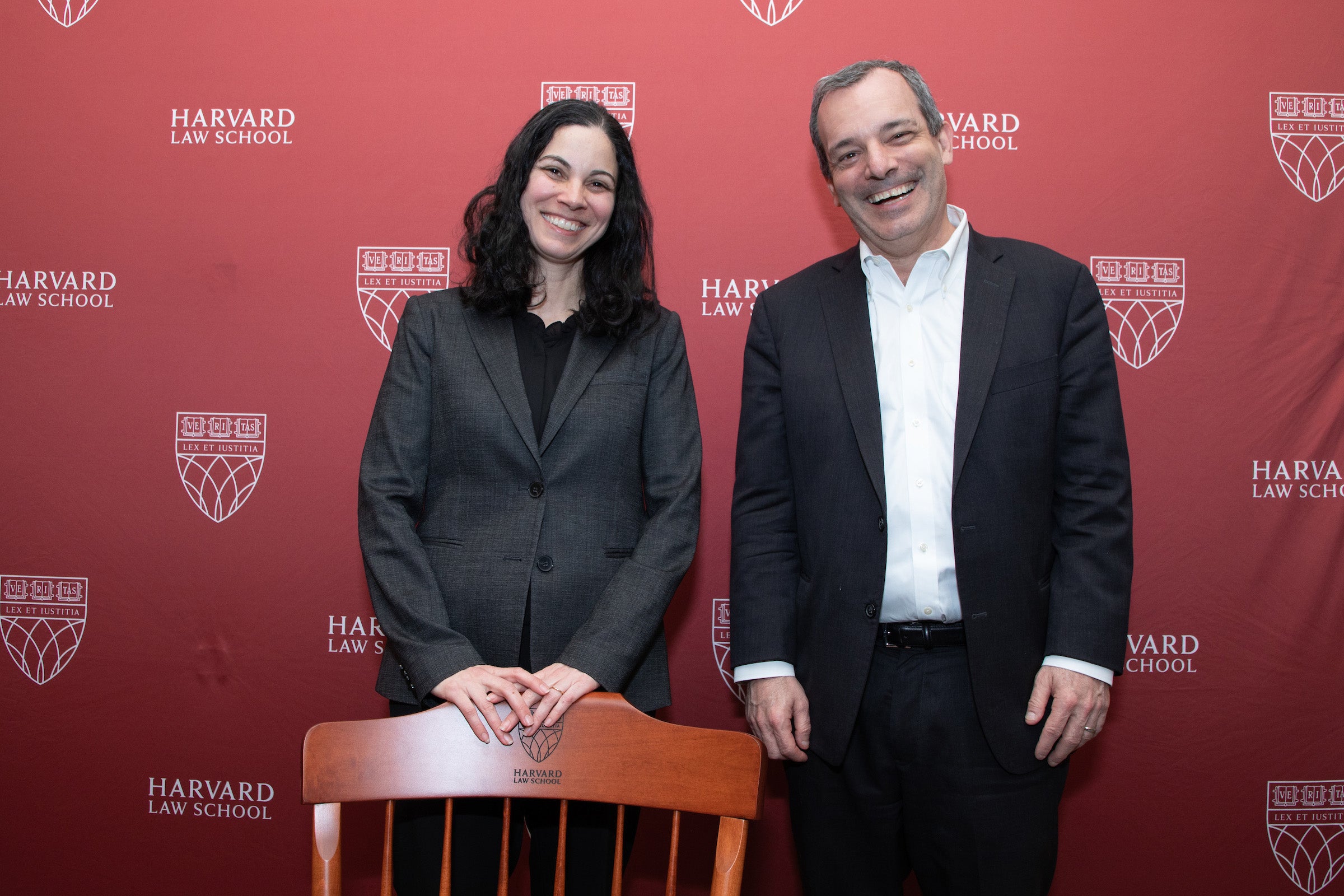Labor unions’ “extension into electoral politics was both necessary to union power,” yet “paradoxically, responsible for its decline,” said Harvard Law School Professor Laura Weinrib ’03 at a lecture last week. Weinrib was speaking at an event celebrating her appointment as the inaugural Fred N. Fishman Professor of Constitutional Law.
Weinrib, who is also the Suzanne Young Murray Professor at the Radcliffe Institute for Advanced Study, is a legal historian and constitutional and labor law scholar. Her talk, “Money, Politics, and the Constitution in the ‘Golden Age’ of Capitalism,” previewed an upcoming book and outlined her ideas about the connection between the labor movement’s participation in politics in the mid-20th century and its later reduction in power.
Weinrib first thanked staff, friends and colleagues, and her students and family. She also expressed gratitude to the family of the late Fred N. Fishman ’48, whose correspondence with Supreme Court Justice Felix Frankfurter figured in her opening remarks.
“[Fishman] felt strongly that ending inequality and injustice required more than the courts or even the Constitution could provide,” said Weinrib. “It’s no wonder then, that Fishman believed lawyers must engage not only in litigating against injustice, but in electing officials who would work to stamp it out.”
In his introduction to the evening, John F. Manning ’85, the Morgan and Helen Chu Dean and Professor of Law, called Weinrib an “extraordinary teacher and colleague who makes HLS better through the many, many ways she contributes.”
“She brings deep insight and integrity to all that she does through her scholarship and teaching on American legal history and constitutional law,” continued Manning. “It is no exaggeration to say that her groundbreaking research on the First Amendment has transformed the way we think about the subject.”
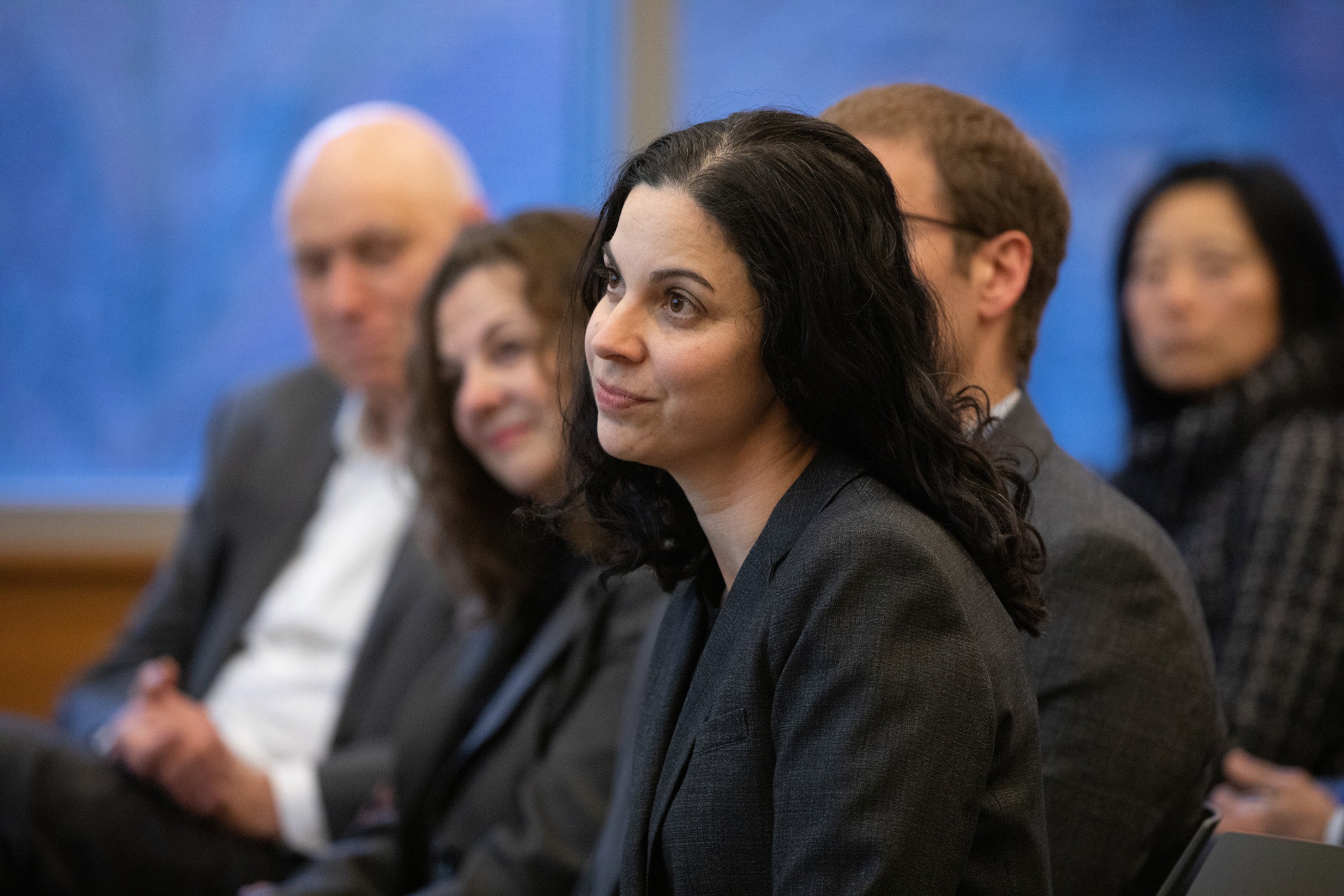
Weinrib began her lecture by pointing out the growing economic inequality in the U.S., particularly along racial lines, adding that “this inequality is profoundly shaped by our legal regime.” A second major point of her book, she said, is that “political spending in the United States is out of control,” “swamp[ing] political spending in other countries.”
She then traced the history of campaign spending of the kind we see today to the late 19th century, when businesses spent millions of dollars to defeat the populist Democrat William Jennings Bryan. By the early 20th century, Weinrib said, the public — and labor unions, which were growing in power — demanded reform. Congress first passed the Federal Corrupt Practices Act, which was easily sidestepped by corporations. It was replaced in 1971 by the Federal Election Campaign Act (FECA), which was amended in 1974 to “impos[e] strict new limits on contributions and expenditures.”
According to Weinrib, discussion of modern campaign finance law typically begins with the 1970s. The Supreme Court of the United States invalidated portions of FECA in its 1976 decision in Buckley v. Valeo, which “allowed some regulation of campaign contributions, that is, payments directly to candidates,” but “struck down the statute’s limits on what are called expenditures, that is, independent spending on behalf of a candidate.”
The case was important, she said, because “the Court held for the first time that campaign spending is protected speech.”
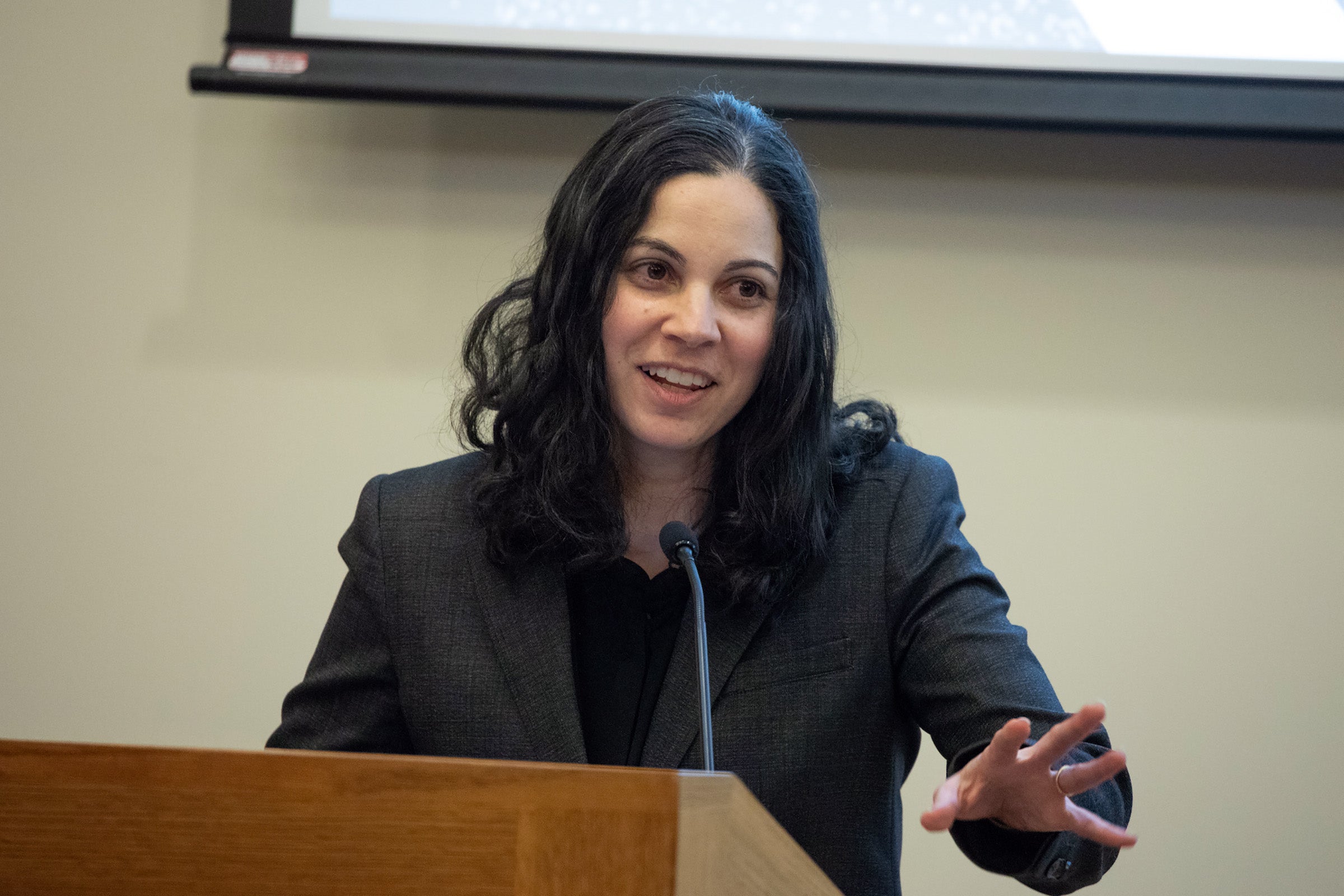
The other controversial premise of modern campaign finance law, added Weinrib, “is that corporations count as protected speakers.” She said this principle, too, is ordinarily traced to the 1970s, pointing to advocacy and Supreme Court decisions by Lewis F. Powell, Jr., “expand[ing] free speech rights for corporations where they were seeking to influence the vote.” But according to Weinrib, these developments in First Amendment doctrine did not in fact begin in the 1970s. They built on decades of litigation and debate over political spending by unions, she said.
Political advocacy and the fact that corporations are free to spend as much as they want on elections might not be such a big problem if there were equivalent funding on the other side of basic economic issues, Weinrib observed. “And in fact, corporate spending used to have a counterweight, namely union spending, and that spending seems to have been effective.”
Moreover, she said, the period of peak union strength aligns neatly with the height of the so-called Great Compression, an era beginning in the 1940s when economic inequality was at a nadir, a time often referred to as the “golden age of capitalism.”
“The effect is largely driven by the fact that unions raise wages within the workplace,” Weinrib said of the connection. “But I want to suggest that it’s also because unions advocated for legislation that mitigates inequality: progressive tax structures, government infrastructure projects, and expanding social welfare programs.”
Weinrib noted that unions did “far too little to address race discrimination within their own ranks, and in some cases even made inequality within the workplace worse.” On the other hand, she said, unions pushed hard for the Civil Rights Act, Voting Rights Act, “and other important legislative measures to reduce both racial and economic inequality.” She added that unions campaigned for the elected officials who enacted and enforced those laws, often in the face of opposition by business groups.
Yet, in contrast to spending by corporations, spending by unions has “declined precipitously” since then, said Weinrib. “Union spending in the United States has declined because unions in the United States have declined,” she explained. “Today, unions are weaker than they have been in generations. And that trend shows little sign of abating.”
“What I want to propose today is that unions’ constitutional campaign against efforts to limit their political spending is part of the reason why,” she continued. Restrictions came in the form of laws like 1947’s Taft-Hartley Act, which, in addition to its more familiar limits on union economic activity, also restricted union political spending. Court cases followed, with “virtually every federal campaign finance prosecution between 1940 and 1970” involving unions, not corporations.
Unions resisted regulation, spending heavily on local, state, and federal elections, and “pioneer[ing] the First Amendment arguments against campaign regulation in the courts.” They relied on a group rights theory, she added, one that proposed “that free speech, like meaningful bargaining, required countervailing power.”
Many anti-union advocates were actually more worried about union political spending than collective bargaining, Weinrib contended. They seized on the fact that a majority of Americans — and even union members themselves — were opposed to the use of union funds for political aims, arguing against “political rather than economic coercion.” This was successful, she said, pointing to the Taft-Hartley Act and a bevy of right-to-work legislation passed across the country. “Despite or because of union advocacy, constitutional liberalism had come to rest on voluntary association, and individual choice.”
Weinrib closed by arguing that the Supreme Court’s recent First Amendment decisions protecting both union and corporate political spending must be read together with its decisions preventing unions from collecting mandatory payments for political purposes, along with other cases that have used First Amendment principles to weaken union political and economic power. In Buckley v. Valeo, she explained, the Court wrote that “the concept that government may restrict the speech of some elements of our society in order to enhance the relative voice of others is wholly foreign to the First Amendment.” According to Weinrib, many labor unions accepted that principle when union majorities were free to direct members’ political spending, because they believed that “First Amendment neutrality could yield meaningful contestation in the realm of electoral politics.” Today, she said, the First Amendment is instead an “impediment to exercising collective power.”
Ultimately, Weinrib said that she believes that union power is critical to reversing economic inequality in the U.S. and that corporate money in American politics contributes to that inequality and to the decline of unions. But, she said, although the unions’ extension into electoral politics was necessary to its power in the last century, it was also at least partly responsible for its downfall.
Could labor have done things differently? That’s the million dollar question, Weinrib said. “Whether judicial interpretation of the First Amendment can ever countenance the forms of solidarity on which union power historically rested, and if not, whether the solution is to reimagine labor power, or to rethink the valorization of choice and voluntariness that infuses political liberalism today … those questions are harder for me to answer.”
But, she concluded, “there is value enough in scrambling our knee jerk reactions about which means serve which ends, in stepping back to reassess our deeply held assumptions.”
